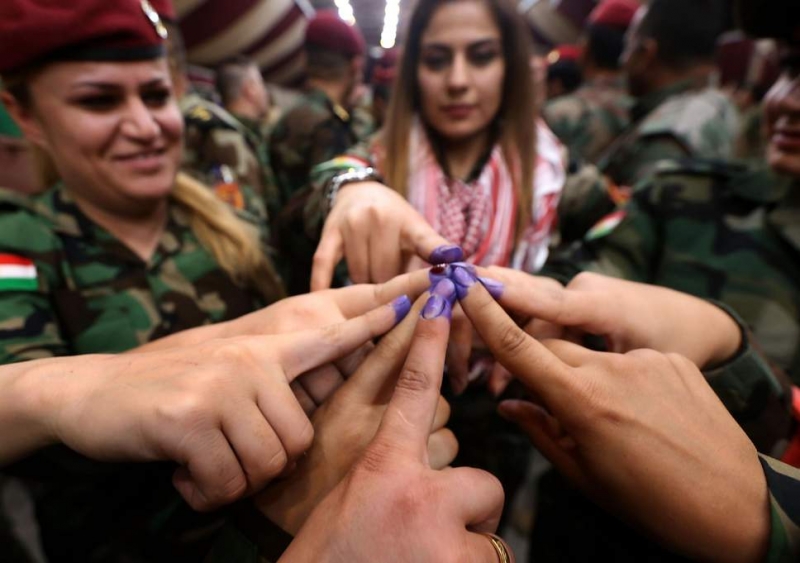Iraqi Kurdistan struggles to rebuild tattered economy
The oil-rich Iraqi region of Kurdistan is struggling to rebuild its economy, a year after an ill-fated independence referendum that Baghdad deemed illegal.
A massive yes vote in the September 2017 plebiscite provoked a furious backlash by the central government, turning a long-cherished dream of the Kurds into an economic nightmare.
Federal forces retook oilfields, depriving the mountainous northern enclave of its economic lifeblood, while Baghdad also imposed a six-month air blockade. And in another blow, Iraq’s parliament in March passed a budget that saw Kurdistan’s slice of the federal cake drop from 17 percent to less than 13 percent.
Outmaneuvered, Kurdish lawmakers boycotted the vote. But the Kurds are now gearing up for another poll; an election on Sunday for the regional parliament. The local economy -- and relations with Baghdad -- top the agenda. Rawa Burhan, 20, intends to vote. He hopes that the new parliament and future government of Kurdistan “will open a new page in relations with the Iraqi government”. Burhan said Kurdish authorities must “negotiate a (new) budget (with the federal government) in order to end the suffering of the people”.
He said his parents, both state employees, have seen their combined monthly income of around $1,700 (1,470 euros) drop to $800, due to the economic hardships that have hit the region. Saman Qader, who has worked for Kurdistan’s ministry of electricity for 15 years, has seen his paycheck shrink from nearly $500 a month to $300.
The 51-year-old father of four said trying to make it to the end of the month is a real battle as he struggles to pay his bills, medical costs for his sick wife and school and university fees for his children.
Related Posts

